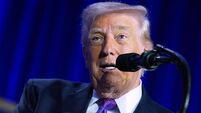US regulator wants to break up Facebook, but faces an uphill battle

Facebook is likely to argue that breaking up Facebook, Instagram, and WhatsApp would be incredibly difficult in a technical sense.
Facebook executives’ worst nightmare is upon them. US regulator, the Federal Trade Commission (FTC), has declared the social network an illegal monopoly, and said it should be broken up.
The FTC and more than 40 states in the US called for the unwinding of the company's Instagram and WhatsApp acquisitions, which have allowed it to achieve unprecedented power over global communication and culture.











